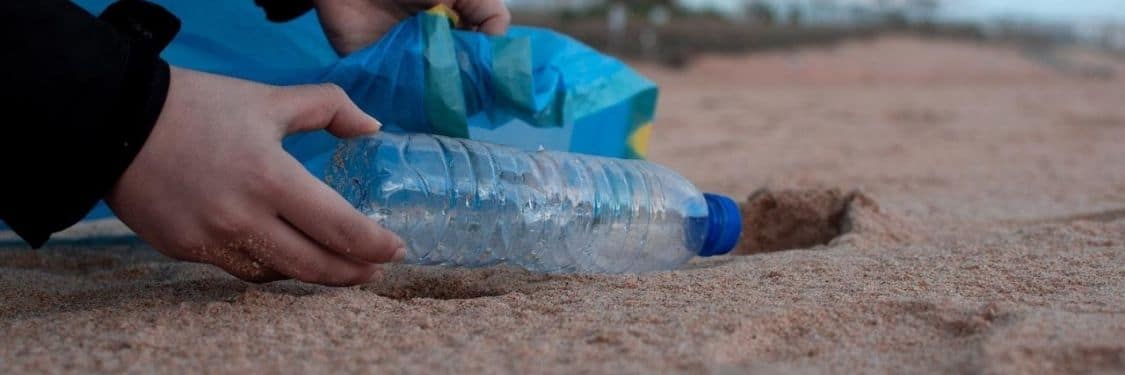The way litter affects the environment is significant, as even small items like cigarette butts can cause adverse impacts when not disposed of properly. That should not come as a surprise given that plastics that have broken down to as small as a micrometre can do that too.
Litter has the capacity to reach great distances due to various factors like the wind and water waves. That’s why trash is a common sight on the streets, sidewalks, and beaches.
What is Litter?
Litter is anything that’s discarded improperly either due to carelessness or laziness. Roadway litter, for instance, often comes from motorists and pedestrians intentionally discarding items. Littering behavior often stems from intentional discarding of items by motorists and pedestrians, attributed to laziness, carelessness, lack of education on its impact, and acceptance of littering as a cultural norm in certain areas. Another reason why people litter is because of disregard for the environment such that they just throw their trash haphazardly on the streets, outside their moving vehicles, or where it is convenient. Below is a short list of commonly littered items.
Common Litter Items: Plastic Bottles
- Cigarette butts
- Plastic wrappers
- Plastic bottles and bottle caps
- Plastic bags
- Plastic lids
- Straws
- Styrofoam and plastic takeout containers
- Food waste
Consequences of Litter
Unsightly Surrounding
Imagine your favourite place crowded with litter. Isn’t that an unsightly thought? Litter can travel long distances and end up along beaches and greatly affect the aesthetics of an area. Litter in public places, on the streets, and in tourist spots can devastatingly downgrade the appeal of such areas.
Pollution: Toxic Chemicals
Litter can severely degrade the quality of land, water, and air. Decomposing organic materials and toxic chemicals from litter, such as rejected cigarette butts, can contribute to air pollution. They can end up in waterways such as the rivers, lakes, and oceans and pollute these bodies of water. As an effect of pollution, aquatic life would be severely devastated and can result in fish kill and algal blooms. Litter can also cause water-borne diseases that could affect the health of plants and animals, including humans.
Sharp objects such as metal scraps and broken glass can also be injurious to marine wildlife, causing amputation of body parts as well as infections.
Zoonotic Diseases
Zoonoses are diseases caused by animals. Litter is a potential breeding ground of germs and bacteria. So, when rodents and pests that are attracted to rubbish in search of food, find their way into piles of litter, these creatures may harbour disease-causing bacteria and infect people. This not only endangers wildlife but also poses significant health hazards to human health.
Habitat Destruction
Litter can damage the habitats of marine and land animals such as the coral reefs. Pieces of junk may accumulate underwater and alter the natural habitat structure and safe living conditions of marine animals. Moreover, plastic debris can bring light and oxygen levels to toxic and unsustainable levels for the aquatic creatures. Local governments often bear the financial burden of managing litter and protecting these habitats, spending significant resources to mitigate its impact.
Ingestion by Animals: Marine Animals
Plastic litter is dangerous to animals because they can be mistaken as food by these creatures. Furthermore, chemicals can adhere to plastics and make them more toxic and hazardous when ingested by marine animals and birds.
As a result, their stomach capacity gets reduced since plastic cannot be digested. In the long run, this would affect their eating habits, eventually making them sick and then die.
Conclusion
Keeping your trash and throwing them according to their garbage classification can go a long way. Practising proper rubbish disposal is crucial so that unwanted junk doesn’t end up in the ocean and anywhere else, causing adverse impacts on the environment. Additionally, proper waste management and recycling efforts can greatly reduce the amount of litter produced and its impact on the environment.
Paul’s Rubbish Removal is your trusted company when it comes to removing rubbish efficiently and environmentally-friendly. Our team of dedicated rubbish removalists care for mother earth as much as you do so you have nothing to worry about.
Let us handle all of your rubbish removal needs from the collection, segregation, all the way to rubbish treatment and disposal.
Want us to deal with your rubbish? Give us a call now at 0407 125 125 or email us at info@paulsrubbish.com.au. We also provide same-day rubbish removal.







